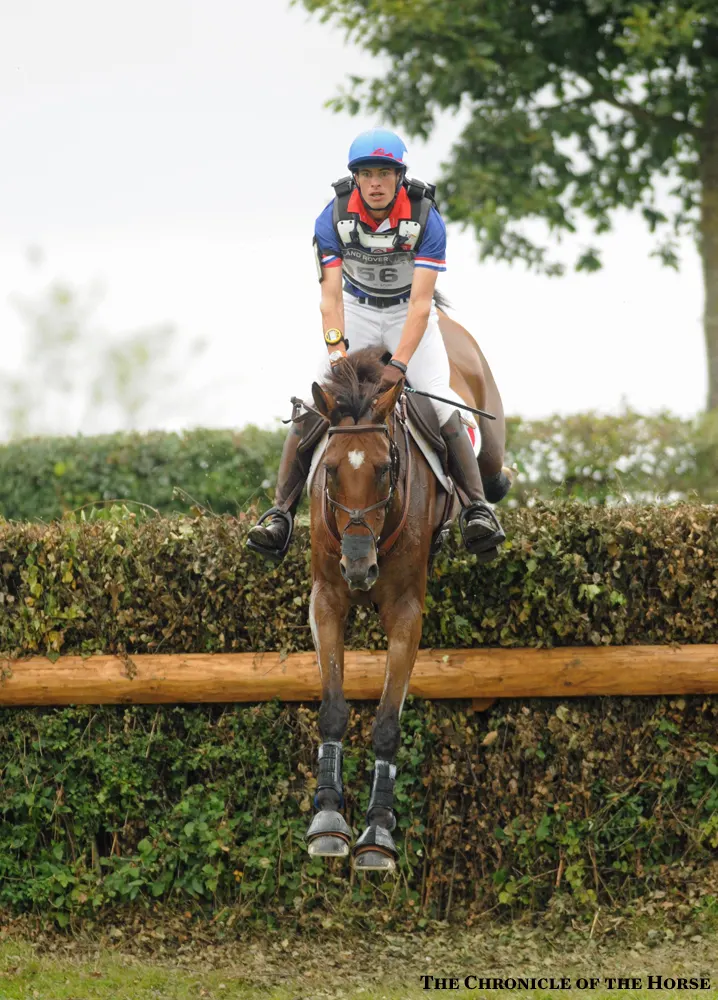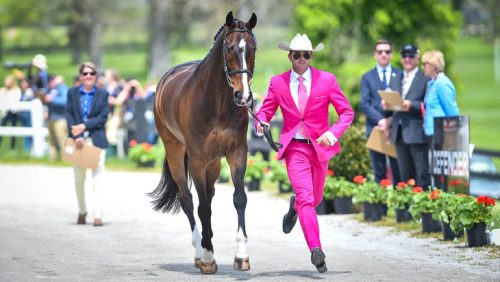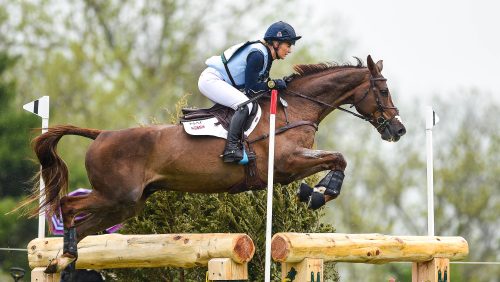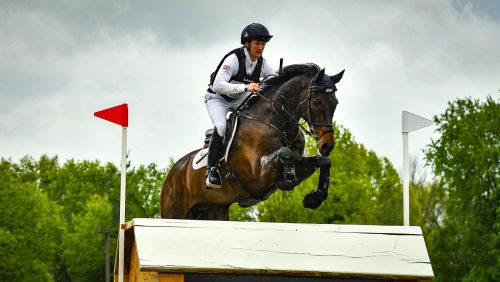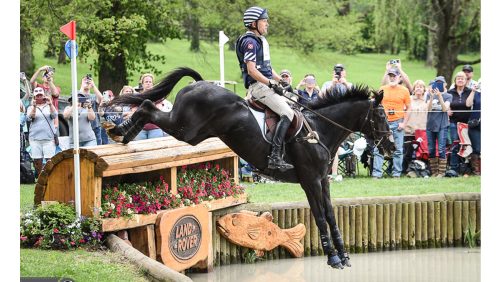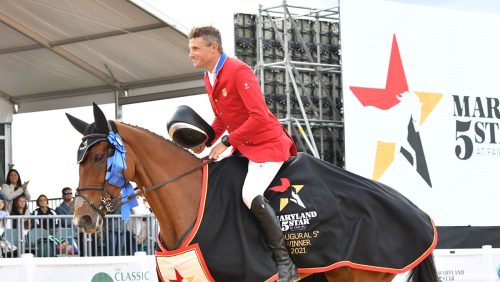The Fédération Equestre International has announced that two horses competing at the Alltech FEI World Equestrian Games have tested positive for controlled medication substances. Controlled medication substances are regularly used to treat horses, but they aren’t allowed in competition in order to maintain a level playing field.
Samples taken on Aug. 29 from event horse Qalao des Mers, ridden by Maxime Livio of France came back positive for acepromazine (Ace). Acepromazine is a sedative. Qalao des Mers finished fifth individually and was a member of the fourth-placed French team.
Samples taken on Aug. 28 from the endurance horse Tra Flama, ridden by Giliese de Villiers of South Africa, came back positive for phenylbutazone (Bute) and its metabolite oxyphenbutazone. Phenylbutazone is a non-steroidal anti-inflammatory used for the treatment of pain. Tra Flama was vetted out at the second vet gate.
“It is the first duty of a regulator to ensure clean sport and a level playing field, and we do this by conducting an ongoing and very comprehensive testing program,” said FEI Secretary General Ingmar De Vos.
“We had clean World Equestrian Games in 2010 in Kentucky and at the Olympic and Paralympic Games in 2012. Our system works and sends out a strong message to our athletes and their entourage that clean sport is our absolute top priority,” he continued.
“We carried out an intensive awareness campaign prior to the Games and also offered pre-arrival testing to all participants, so it is very disappointing that we have two positives for controlled medication substances at the Games, especially when it is well known and well accepted that both these substances are not permitted in competition. Although these are controlled medication not doping substances, we take this very seriously.”
ADVERTISEMENT
The FEI has confirmed that all equine samples taken in the first week of the Games in the disciplines of dressage, para-dressage and reining are negative, and that there are no other positives in endurance and eventing.
Livio released a statement on his facebook page today, Sept. 5, about his horse’s positive sample.
“We came [to] the World Games with the hope and the desire to get on the podium as a team, and personally I was aiming to be in the top 10,” he said. “I was therefore sure that my horse would be controlled. I would never have taken such a risk to France or to my career, and I disapprove doping, which does not correspond to the ethics I sports and horse riding.
“I await the detailed analysis of the sample A. Not having any doping substance administered to my horse, for now I can consider nothing more than a malicious act.” he continued. “The French Equestrian Federation has always led numerous campaigns and actions that riding is a clean sport in France, and I was aware of all this since I was junior. A few weeks before the [World Games], a final seminar again awakened us with a review of all our food and dietary supplements.
“For 10 years, I put great care to build my career in the most professional way possible, and I would never have taken such a risk after so many years of efforts to reach the level where I am today and my first objective: the World Equestrian Games.”
A total of 137 horses were tested in the first week of the Games: 49 in endurance (28 percent of 173 starters), 24 in eventing (26 percent of 91 starters), 22 in dressage (22 percent of 100 starters), 21 in reining (26 percent of 82 starters) and 21 in para-equestrian Dressage (21 percent of 100 starters).
ADVERTISEMENT
In addition to random testing, the FEI conducts compulsory testing of all individual medal winners at the World Equestrian Games, and at least one horse from each of the medal winning teams. To ensure the integrity of all processes, representatives of the Equestrian Community Integrity Unit, including chairman Lord Stevens, have been on-site throughout the Games.
The controlled medication positives will not result in an automatic provisional suspension but will go before the FEI Tribunal after the Games. World Equestrian Games cases are not eligible for the FEI administrative (fast-track) procedure.
As at the Olympic Games, a positive result for a team member can result in the disqualification of the whole team. In the Qalao des Mers case, this could mean disqualification of the French eventing team and loss of Olympic qualification for Rio 2016.
As part of its Clean Sport campaign, the FEI offered all national federations the opportunity to have a full screen pre-arrival testing for horses from July 21 until two weeks’ prior to arrival at the Games. Additionally, elective testing for specific controlled medication substances was also offered close to the event.
All equine samples taken prior to and during the Games are tested at the FEI Approved Laboratory in Paris. Testing is conducted at the laboratory using a bar-coded system, which guarantees anonymity.

